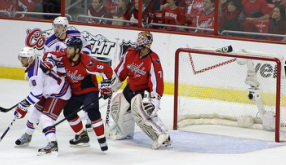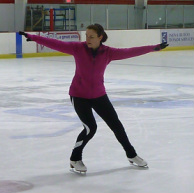 What diehard Caps fan didn't hold his breath or shake her head in disbelief watching super goalie Braden Holtby allow 8 goals on 45 shots as this season started? Who can we count on now? What is going on?? But one person wasn't worried, and that was Holtby himself. Confidence intact, this student of the mental game of hockey understands exactly what is happening, and knows that in a short time he will be all he ever was and more. Even the greatest athletes can find room for improvement, though often are reluctant to make any tweaks or modifications, for fear it will interfere with their continued success. In fact, the changes, if applied, practiced consistently and internalized, will only enhance success in the long run. But the resistance persists for many. An athlete may look to a coach, veteran teammate or professional such as myself, for something they can do to improve, to get the edge over the competition. But if that "thing" is a change in style, position, anything the athlete has been doing for a long time, the walls can go up. It is true that initiating change means what has become a habit needs to be "unlearned" in favor of something new. Research has suggested for anything to become a habit it must be consistently applied for at least 6 weeks. Most athletes say, and rightly so, that they don't have 6 weeks to experiment with their performance. So timing is indeed a consideration. Ideally when an athlete is performing, he wants the movements to be automatic. He shouldn't have to think, just do it. When something new is in the mix, inevitably thinking goes along with it. "Wait, I have to do this instead of that." "Now how was I supposed to stand?" So we need to remove the conscious thought in favor of automatic responses. Holtby has been fortunate to be able to work with goaltending coach Olie Kolzig, himself an outstanding netminder, who has made some "tweaks" to Holtby's game--mainly footwork and positioning. Holtby says, "I think any changes you make that you haven't used your whole life take a little bit of work." And of his slow start, "It's just one of those things that when you start to struggle you go back to your old ways and get in even more trouble." Old ways, old habits, former automatic moves. The key is to make the new moves automatic, to completely replace, write over the old ones. Holtby is an amazing athlete, and fortunately also a willing student, eager to soak up expertise wherever he can find it. Obviously the new elements make sense to him; he has bought in to them. This is a very important point. You need to trust the source of the new information, believe that the changes will indeed work, and completely understand the reasons behind them. Now it is just a matter of making the new elements automatic. Holtby gets it, and will be that much better for embracing the changes. There is no need to fear change in your game if you plan for it, devote yourself to practice it and internalize it to make it automatic. You'll know when you're there, because suddenly there will be no "old ways" to fall back on in a critical moment. I like the saying, "Don't practice until you get it right. Practice until you can't get it wrong." Pure automatic.
0 Comments
|
"Even if you are on the right track, you will get run over if you just sit there." Personal Best SportsThe sports world is filled with stories of perseverance, failure and success, personal struggles and public triumph. Each story provides insight into the mental side of sport and activity. Archives
March 2016
Categories
All
|

